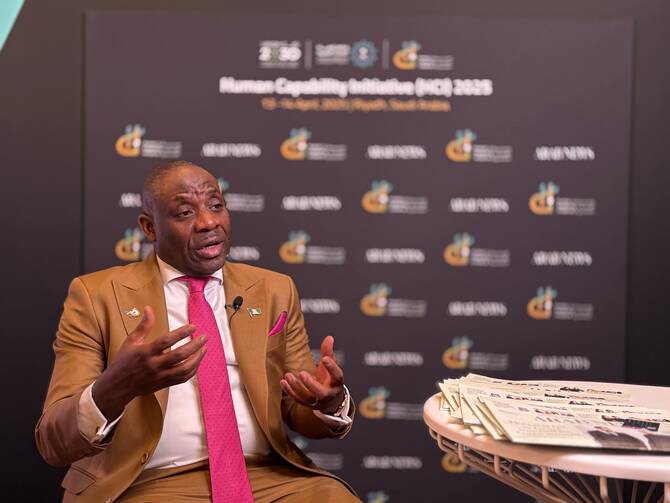As Nigeria positions itself for stronger foreign investment, the conversation is shifting beyond policy and infrastructure to a more fundamental driver—human capital development. At the heart of this movement is Associate Professor Humphrey Akanazu, Executive Principal of Docenti Global Business School, who is championing international-standard education tailored to Nigeria’s realities.
Akanazu, who helped introduce the Rome Business School model into Nigeria before co-founding Docenti, believes that quality education is a strategic investment tool. Instead of spending tens of thousands of dollars abroad and uprooting careers, Nigerians can now access globally recognized qualifications and skills at home—without disconnecting from their professional lives.
“We are creating a system where Nigerians earn world-class qualifications without leaving their jobs, families, or culture,” Akanazu explained, underscoring his philosophy of blending global standards with local relevance.
This vision has now merged with Nigeria’s broader economic agenda. Docenti Global Business School recently entered a strategic partnership with the Nigeria Investment Forum (NIF), a platform that convenes policymakers, business leaders, and investors annually to unlock high-impact opportunities. Together, they aim to equip professionals and entrepreneurs with cutting-edge skills that not only elevate their competitiveness but also make Nigeria a more attractive destination for global investment.
The collaboration goes beyond education—it is about building an innovation-driven economy. By merging academic excellence with industry relevance, the initiative will expand entrepreneurial capacity, stimulate innovation, and support workforce readiness, positioning Nigerian talent as a magnet for investors.
The upcoming 2025 edition of the Nigeria Investment Forum in December will spotlight this agenda, with Professor Akanazu joining top speakers to discuss how talent development can catalyze Nigeria’s investment future.
“The education sector is not just about learning,” Akanazu insists. “It’s about creating pathways for people to grow without losing their roots or their livelihoods. When talent is globally competitive, investment naturally follows.”

